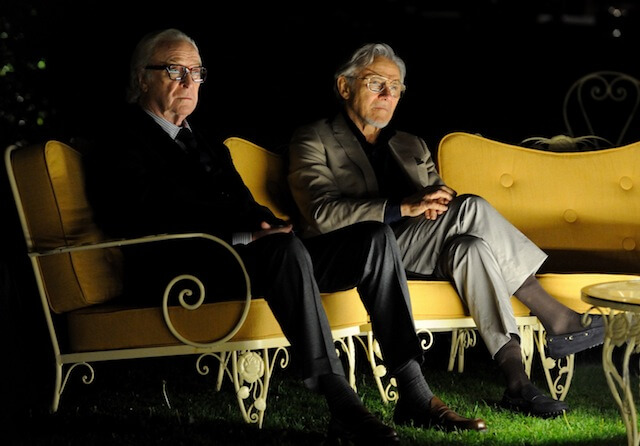‘Youth’ “Emotions can be overrated.” The characters in “Youth” are never short on pithy quips. Whether they even believe them is another matter. The person who says that — Fred Ballinger (Michael Caine), a famous composer and conductor — may sort of believe it, if only in the sense that emotions are something that could ruin his semi-happy retirement. Seen whiling away his annual stretch at a Swiss Alps resort, he has a lot to escape from: a storied career that no longer interests him; an angry but devoted daughter (Rachel Weisz); old lovers, including a bitter, out-of-the-picture ex-wife. But he’s learned to weather it, to hide behind his wealth and a permanent look of vague irritation, deadpanning things that sounds funny but may not be what he really feels. (Caine wears the same displeased expression as when he’s doing paycheck dreck like “The Swarm” or “On Deadly Ground,” only for a film that knows exactly what it’s doing.) RELATED: Sarah Gadon talks “A Royal Night Out,” says young men have it tough in Hollywood too Fred is thus your typical Paolo Sorrentino hero. The Italian filmmaker, whose “La Dolce Vita”-ish “The Great Beauty” scored an Oscar two years back, makes movies about stubborn, sarcastic, epically bored protagonists — usually aging men — contentedly trapped in prisons of their own devising. Life for them is circular, and so are the movies. That doesn’t mean they’re dull. Sorrentino’s films are about boredom but also teem with stuff: crazy art shows; silly sight gags; elegant camerawork; over-the-top supporting players whose nuttiness contrasts with our stick-in-the-mud centerpiece. But these are all mere distractions — momentary thrills that fade into the ether as soon as they appeared. Like Toni Servillo in “The Great Beauty” or Sean Penn in “This Must Be the Place” (the one where the very serious actor was decked out like Robert Smith), Fred only takes joy, if you can call it that, in pleasures that don’t last, that may even be frivolous. His closest thing to a friend is fellow resort inmate Mick (Harvey Keitel), an esteemed director who’s American but has the air of classic Euro filmmakers, especially those, like Luchino Visconti or Michelangelo Antonioni, whose latter day work was considerably less revered than those from his prime. Even there, though, they refrain from forging a deeper bond. “In a good friendship you only tell them the good things,” Fred quips when asked why neither is aware of the other’s anxieties and hardships, such as Mick’s struggles to finish writing his latest film with the aid of a bunch of earnest, starstruck and not very talented kids. The attempt to avoid sadness becomes sad in its own right. And sadness can’t be put off forever. Fred is so stuck in a bubble he doesn’t even know how to react when Weisz’s Lena shows up at the spa, having just been dumped by her husband for a vapid pop star (played by actual pop star Paloma Faith). Instead he just puts up with her without engaging. At one point, while they’re lying on separate massage tables, she tears into a devastating, Bergmanesque rant about his failures as a father. The camera holds on her face, stern but tearstreaked, without cutting to Fred. After all, even he doesn’t know to react. RELATED: Interview: Michael Caine on “Interstellar” and meeting Stephen Hawking “Youth” stews in Fred’s go-nowhere existence, savoring every last bit of it. It can often feel, as it should, like things comin’ at ya, only somewhat organized around certain themes. There’s a lavish music video that turns out to be one character’s nightmare. There’s Felliniesque grotesques and Paul Dano, as a hotshot but disgruntled actor, dressed as Hitler. Jane Fonda, as Mick’s most frequent actor, storms in for a killer walk-on then storms back out. And there are those pissy one-liners: “Levity is also a perversion,” “Intellectuals have no taste” — things characters say more to get a rise than to express how they really feel. Late in Mick rails against television while lamenting the death of cinema — this in a film that could never function as a TV series. “Youth” prides itself on being a spacious warehouse of incidents and jokes and moody brooding, but it, like life itself, has a clear and perhaps unexpectedly devastating end point.
Director: Paolo Sorrentino
Stars: Michael Caine, Harvey Keitel
Rating: R
4 (out of 5) Globes
‘Youth’ is a funny/sad look at Michael Caine doing nothing

Fox Searchlight
Follow Matt Prigge on Twitter @mattprigge


















